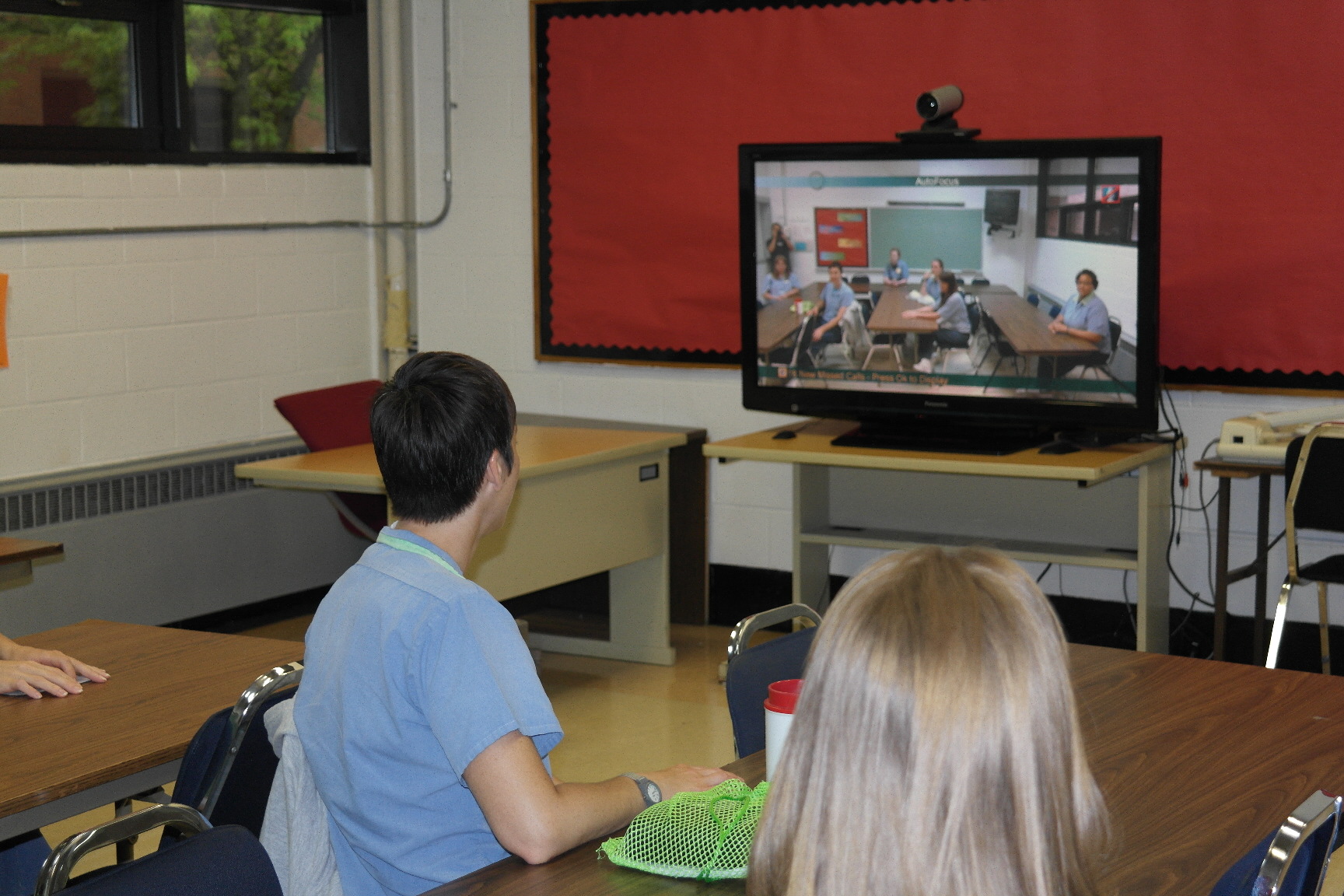Sinclair Community College partners with five correctional institutions across the area to enable inmates an education they may have not been given access to otherwise.
“At Dayton Correctional Institute alone we typically run about 125 students per semester,” Cheryl Taylor, correctional facilities coordinator, said. “About 50 percent of them usually make the dean’s list — they are focused.”
Rand Corp., a nonprofit research organization, released a study in February of this year that shows inmates who participate in correctional education programs are 43 percent less likely to be re-incarcerated than those inmates who do not participate. The Department of Rehabilitation and Correction said the current inmate return rate of 27.1 percent dropped from 28.7 percent the previous year, according to a Washington Times report on March 5.
The Dayton Correctional Institution is a medium-security female prison currently housing 912 inmates. Among them, is Jayme Santini, an artist who is interested in web design and currently participating in the Distance Learning program offered through Sinclair.
Santini has been in prison for twenty years and said she made her mistake when she was just a teen.
“I was young and got caught up in drugs and was in the backseat of the car when the driver shot the passenger,” she said. “I was nineteen, young and thought that none of that could ever happen to me.”
When Santini came to prison, she did not want what had happened to her to define who she was as a person. As a result, she took full advantage of the classes offered.
“I appreciate the program and I appreciate Sinclair,” she said. “They are very open and try and give us the same opportunities that other Sinclair students get, and it’s not like that everywhere.”
With the Distance Learning program, Santini said she is able to have something similar to a normal lifestyle, and it is a sign of hope that she can succeed outside of the prison walls.
“This is the path I choose and I’ve made it the best that I could,” she said.
Taylor also believes the experience for inmates is one that mirrors a lifestyle outside of prison, with the main goal of employability upon release, which can enable them to be productive members of society.
Cristy Critchell, who was involved with drugs, was familiar with Sinclair before coming to DCI.
“I started doing drugs at a young age and started hanging out with the [wrong people],” Critchell said. “I got caught up and was making bad decisions.”
Critchell has only been at DCI for a few months because of a probation violation.
“I initially got in trouble when I was 19 and got out,” she said. “I messed up my probation and now I have a year sentence.”
Critchell went to Sinclair before her sentence, but dropped out. She is glad she ended up in a position that enabled her to take classes at DCI.
“I’m kinda glad I came here because obviously I didn’t want to be doing drugs and doing stupid stuff,” she said. “It got me on the right path and it got me thinking right — it got me in school again.”
After her release, Critchell is planning to come back to Sinclair to get her Mental Health Technology degree, and work in some kind of rehab setting, helping others with issues she has struggled with.
However, Honors graduate Stacy Garrett did not see her life ending up the way it did.
“I’m here for a non-violent drug crime,” she said. “I was an honors graduate in high school and voted most likely to succeed — but 15 years later I’m in prison and never thought I would be here.”
Garrett wanted to be an engineer and was going to Cincinnati State. After she graduated, she made a mistake that affected the rest of her life – but with the Distance Learning program, she is now able to create more for herself.
“I never had the money to go back to school and I didn’t qualify for financial aid, so this is a good starting point,” she said. “If it wasn’t for Sinclair I don’t know what I’d do with my time.”
Garrett also said the instructors at Sinclair are accepting and very positive, making inmates feel like they are more than their convictions.
Taylor said that some of the instructors teach at the institutions, and others from a conference room in Building 9. This method is known as Distance Learning. During Distance Learning, both the instructors and students can interact with one another through a television screen. Garrett said this is a great opportunity because not only do you interact with your instructor, but other inmates from the other four institutions.
“They are at a point in life where they’re like, ‘I’ve been doing that and I don’t want to continue this cycle,’” Taylor said.
Brittany Smith escaped from a juvenile detention center when she was 15 and after, started selling drugs.
“My reason for [selling drugs] was because of escaping,” she said. “I tried to get jobs — things were so difficult — if I did have a job, I couldn’t keep it long because when they found out about my felonies I got fired because my crimes were violent because of escaping.”
Smith said she sold whatever she could to take care of not only herself, but her child. The money was good so she continued down the wrong path, where she ended up with a five-year sentence.
“I’m a different woman today,” she said. “Before I only went to school because other people wanted me to — and one thing I have learned is that if I don’t do something for myself first, I’m not going to do it.”
For Smith, DCI presented her with opportunity.
“People here make you feel like you are better than your circumstances and you can do better,” she said. “I know if I can do great things in here, I can do great things out.”
Smith plans to own a restaurant upon her release.
“With the right networks and with learning some of the things I have in this program, I know I am going to be able to succeed,” she said.
To be eligible for the Distance Learning program, the inmates have to be within five years of release, whether that be for parole or actual release date, and are able get up to two certificates.
“They can only miss one class the entire semester,” Taylor said. “If they do, they have to set off for a year.”
Teaching them how to get jobs is a whole paradigm shift and different way of thinking, according to Taylor.
“It’s a dynamic program where if they don’t want to come back to prison they never have to,” Taylor said.
Patricia Abrams, who has spent two years in prison, plans to relocate after being released and continue working toward a Business Management degree.
“I’ve gotten a lot of education since I have been to prison,” Abrams said. “Something, some kind of light coming out of this anyway — I actually see a little brightness in my future that I feel hasn’t been there in a long time.”
April Lowman said it was a blessing that she got to DCI when she did. She arrived the day before enrollment began for Sinclair’s Distance Learning program.
“I have that prison number, but that does not define who I am at all,” she said.
In a report released by The Columbus Dispatch, school superintendent for the Ohio Department of Rehabilitation and Correction, Denise Justice, talked about former offenders and their success stories.
“Why we care is that 98 or 99 percent of all inmates are going to come home to our neighborhoods,” Justice said. “If we do not give them the opportunity to gain employment at some kind of a life-sustaining wage, they’re going to come back to prison and we’re going to be housing them again at a taxpayer expense.”
Santini believes everyone, no matter the circumstances, can overcome their mistakes.
“I just want people outside of here to know that we are not all monsters,” she said. “We are just normal people who make mistakes.”

